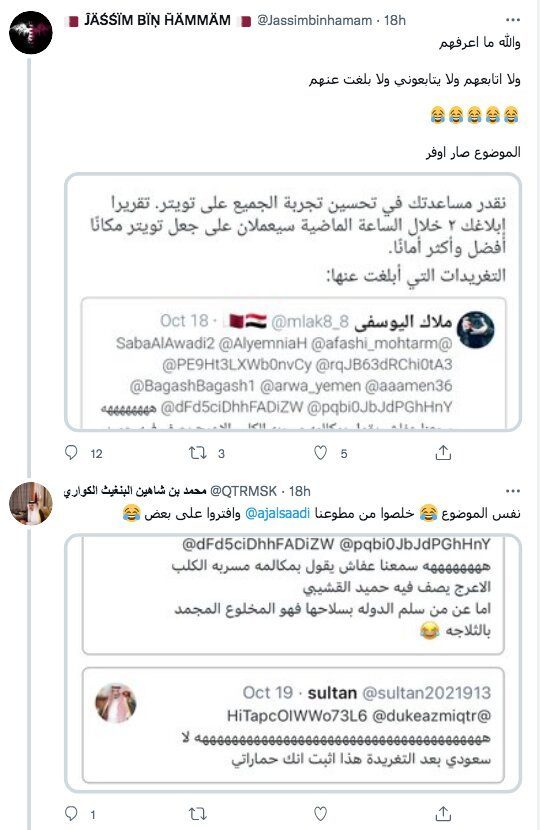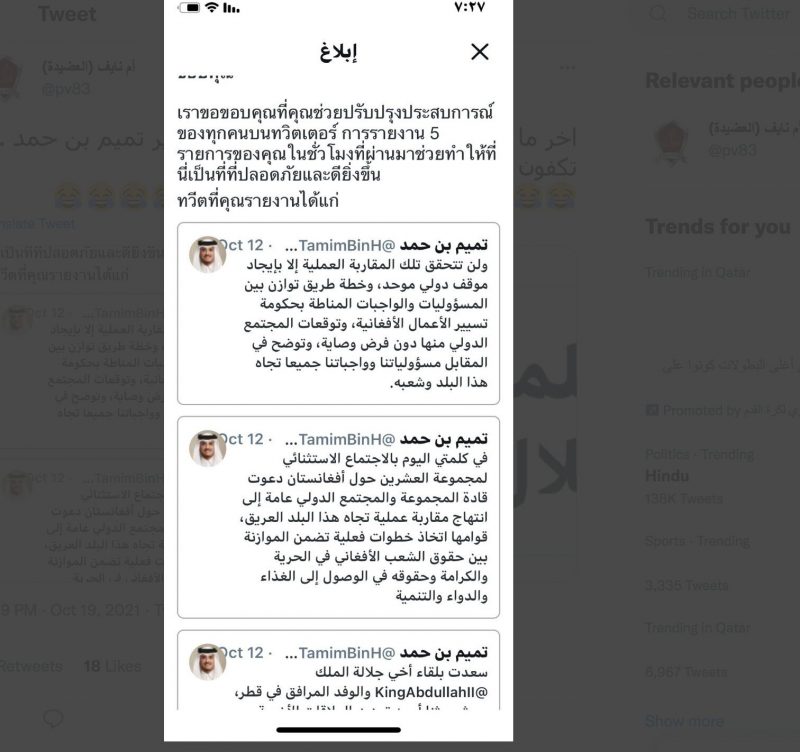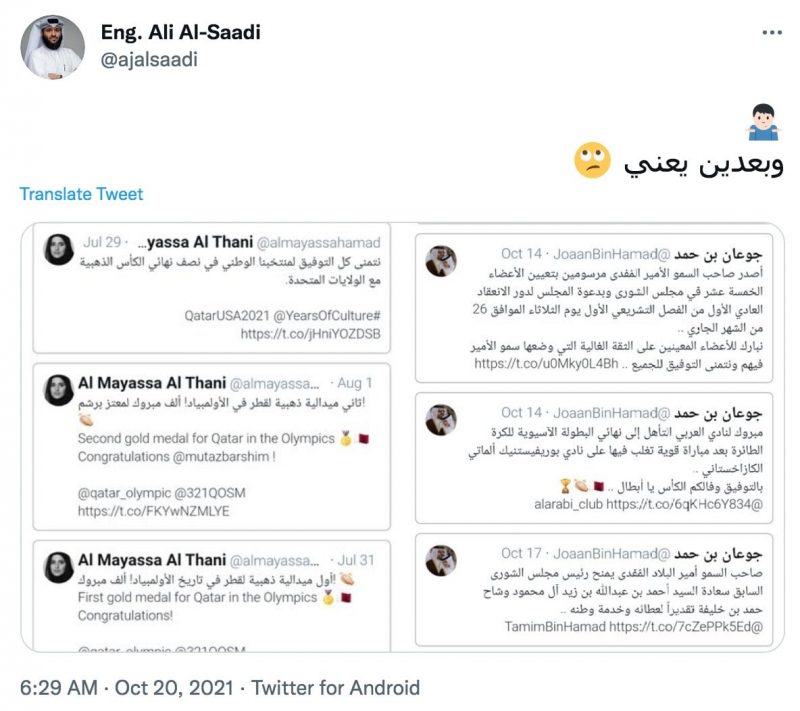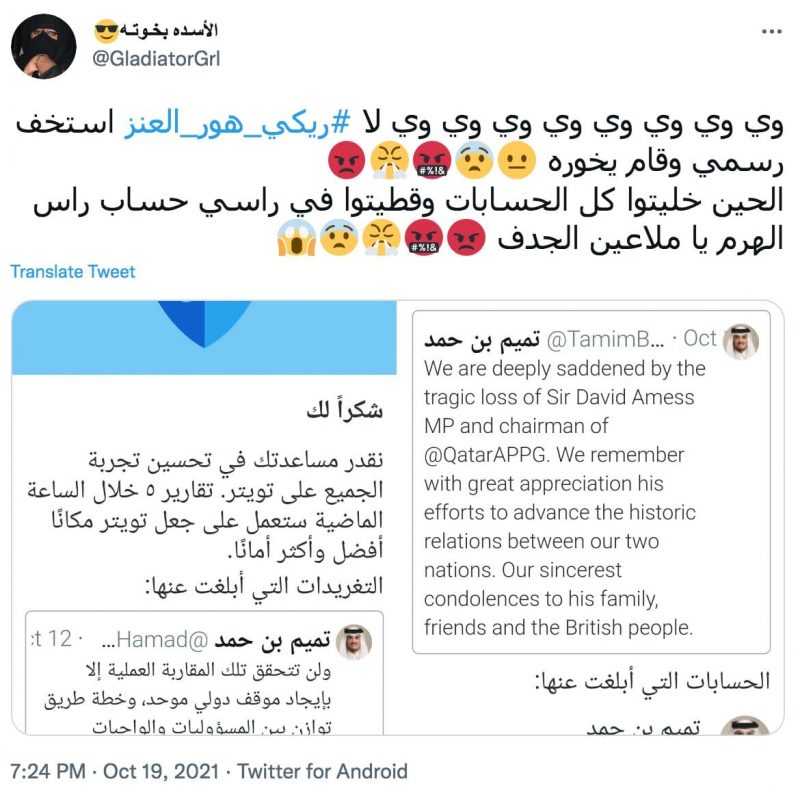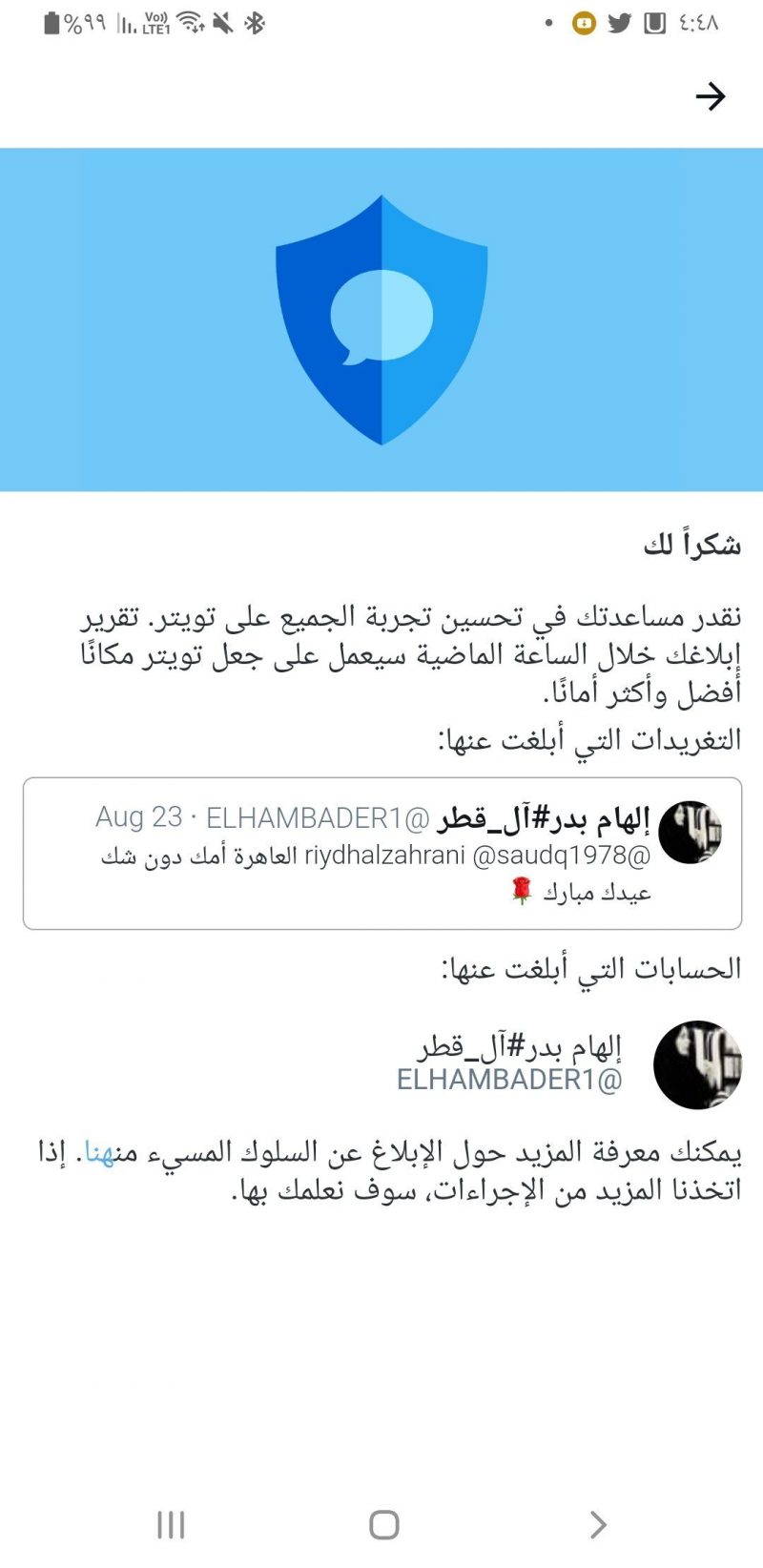Twitter has yet to comment on the matter.
Qatari Twitter users have been receiving suspicious notifications from the social media platform claiming that they reported tweets mostly belonging to officials from the Gulf state, including Amir Sheikh Tamim bin Hamad Al Thani.
Suspicions emerged between late Tuesday and Wednesday when a number of accounts owned by Qatari users received a notification from Twitter informing them about a range of tweets that they had allegedly reported.
The notifications, allegedly from the platform itself, were sent in both Arabic and English, saying: “We appreciate your help in improving everyone’s experience on Twitter. Your [number of tweets] reports within the past hour will help make this a safer and better experience.”
However, clear discrepancies were noticed between the ‘Twitter’ notifications, including a change in wordings, suggesting they were not automated messages by the platform.
In one of the Arabic messages, a clear error is made. When translated, the message says: “We have received five two notifications in the past month”.
Meanwhile, some of the other notifications, as seen in screenshots shared by users in Qatar, made no mention of the number of tweets reported.
Those who received the notification denied filing such reports, raising questions on how their account was breached in such a manner.
Speaking to Doha News, one user, who has over 26,000 followers on Twitter and whose account received the same notification, blamed the mystery on a UAE-based account that has previously targeted Qatari accounts.
The source said the owner of the account under the name “Lord Azmi” – a clear attempt to mock prominent Qatar-based media figure Azmi Bishara – regularly tweets about his successful targeting of Qatari accounts under the hashtag يا_خصيم_ الدار_ شوف# [#To_The_Enemy_Of_The_Land].
In the latest incident, the mentioned account tweeted screenshots of the Twitter notifications that showcased ‘reporting’ of the amir’s tweets in a bid to portray dissatisfaction by Qatari users.
“A week ago, he told me he was going to shut down my account by filing a complaint unrelated to the nature of the report…after several failed attempts to restore my account the Twitter administration finally agreed to do so,” the source told Doha News, noting no action was taken against the suspected account.

Doha News reached out to Twitter but has yet to receive a response.
Social media users called on Qatar’s Ministry of Transport and Communications to step in to protect users from such breaches.
“To be frank, these reports have gone too far. The Ministry of Communications and Information Technology must intervene and communicate directly with the Twitter administration, preferably the parent company in America,” tweeted Saad Al Mohannadi, a cartoonist at Qatar’s Al-Watan newspaper.
Meanwhile, prominent Qatari media personality Elham Bader questioned whether Pegasus spyware was involved while questioning whether such incidents were being reported by other users around the world.
The latest developments follows months of heightened campaigns against Qatar on Twitter, including trending hashtags that attempted to propagate anti-Qatar messaging.
A Doha News investigation published earlier this year exposed sinister manipulation campaigns carried out by dubious bots and public figures in some of the GCC’s former blockading countries.
Investigation: The clandestine operation to manipulate Qatar’s public opinion
While Doha News was unable to determine beyond doubt who was deploying the fake bots, other reports and experts pointed towards authoritarian regimes in the Arab world who have in recent months and years been exposed for utilising this tool to maintain further control on citizens – extending social media to their existing, vast and ever-evolving repressive global security apparatus.
In April 2020, Twitter confirmed the removal of 2,541 accounts in an Egypt-based network, known as the El Fagr network, which it said created inauthentic accounts to push messaging critical of Iran, Qatar and Turkey.
Similarly, a network of accounts associated with Saudi Arabia and operating out of multiple countries including KSA, Egypt and UAE, were amplifying content praising Saudi leadership, and critical of Qatar and Turkish activity in Yemen.
Twitter said that it removed a total of 5,350 accounts at the time.
Follow Doha News on Twitter, Instagram, Facebook and Youtube


